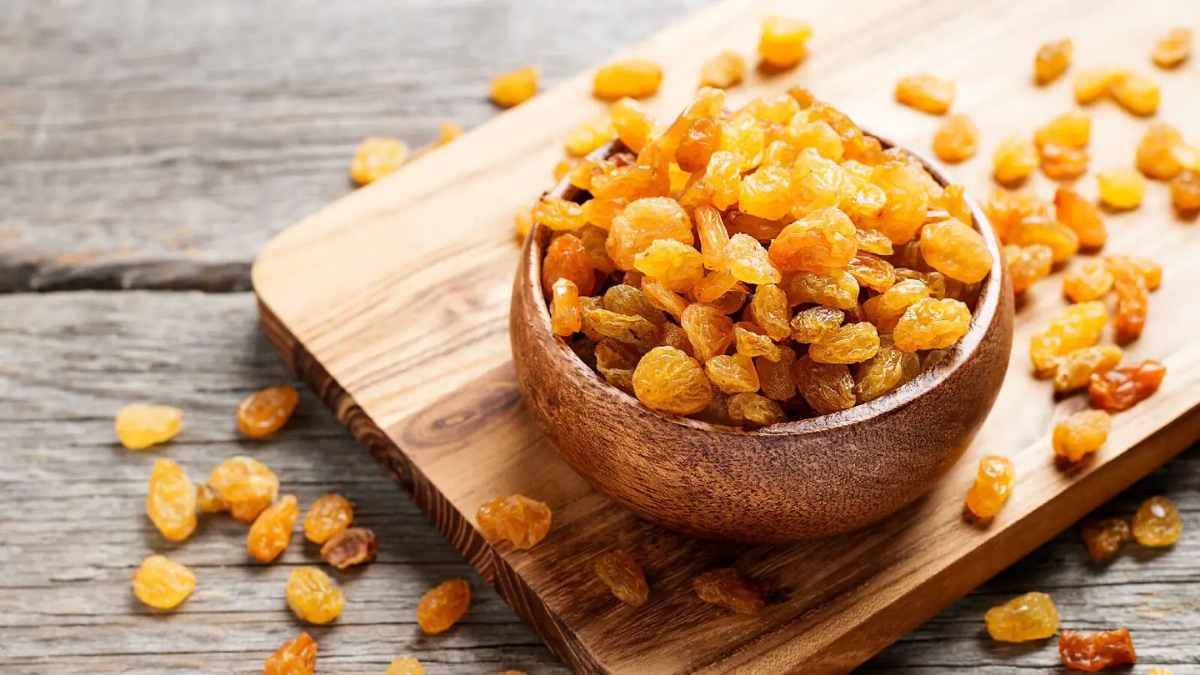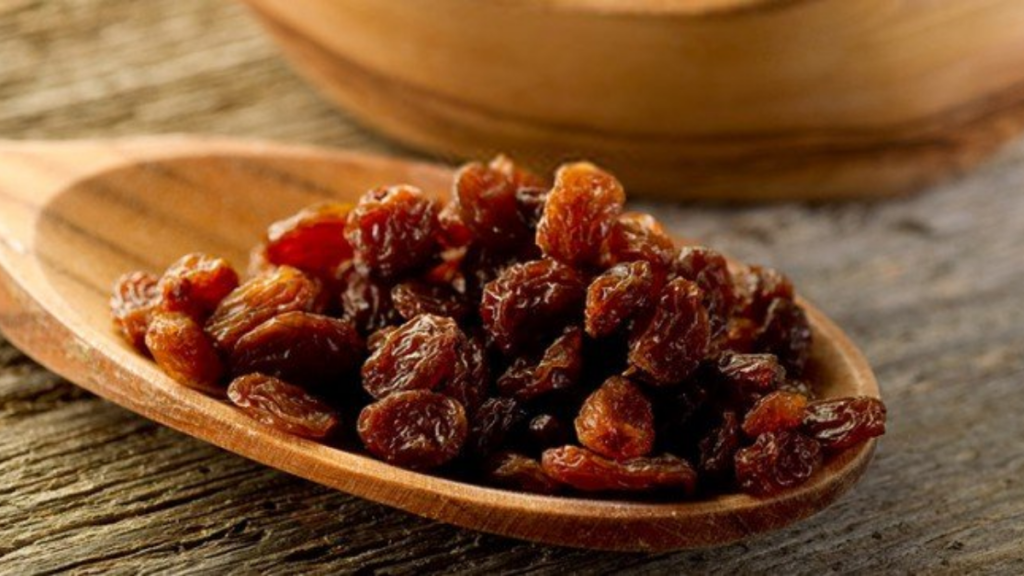Raisins can be eaten as a snack or used as a cooking and baking ingredient. But, no matter how you use them, you’ll eventually have a large open package that you don’t intend to finish anytime soon. While drying fruit is a reliable preservation method, and raisins have a much longer shelf life than grapes, raisins can also go bad. Raisins have a one-year shelf life if kept in their original packaging and stored in your pantry. While the raisins may still be safe to eat after this point, their quality will have greatly deteriorated. To know how to tell if Raisins is gone bad, read further.
You need to know if raisins go bad, whether you need fridge space or want to know how long you can stretch them. After all, you’ll still be wondering what to do with that package of raisins in your pantry, whatever the case may be (or in your fridge). You’re in luck if you’re concerned about these issues.
What are Raisins?
Raisins are a dried fruit variety. They’re made from grapes that have been sun-dried or dehydrated in a food dehydrator. They are usually brown or purplish. Raisins get their dark color from the drying process, which takes three weeks. Raisins have a soft, slightly wrinkled texture when eaten alone. They have a naturally sweet flavor and a lump of high sugar and calorie content, making them an excellent addition to desserts or protein shakes. Raisins have numerous health benefits, including increasing iron levels in the body, improving bone density, and aiding digestion due to their fiber, vitamins, and minerals. They also help control blood sugar levels while lowering blood pressure. They can also help increase feelings of fullness due to their fiber content.
Raisin Varieties
Here are the varieties of raisins:
- Currants: Tart, seedless, and acidic, with a deep hue. These are of a smaller size.
- Flame Seedless Raisins: Extra delicious, big, and dark red.
- Golden Seedless Raisins: Oven-dried to minimize the darkening influence of sunlight, resulting in a yellowish appearance.
- Monika Raisins are huge, seedless raisins with an orange-brown tint.
- Muscat Raisins: These are medium-sized, brown raisins with a delicious flavor. They are often offered with seeds.
- Sultanas are enormous yellow-green Sultana grapes that are exceptionally tender, sour, and golden brown.
How to Tell if Raisins is Gone Bad?
Here are some signs of bad raisins:
- Spoilage with dried fruit is a little less obvious than with fresh fruit. Typically, smelling the raisins can provide the best indicator.
- If they smell sour or rotten, they’ve gone bad and shouldn’t be eaten. Although it is not common, any dried fruit that has been stored for more than six months should be checked for odor changes before eating.
- Another sign that raisins have gone bad is mold. If the fruit has any signs of mold growth, it should be discarded. Mold will not grow on dried fruit unless moisture from the outside is introduced.
- This can happen if the raisins are stored in an extremely humid environment, so it’s so important to keep them in a tightly sealed container!
- While discoloration may indicate spoilage, it does not always indicate that the raisins have gone bad.
- If raisins haven’t spoiled yet, they’re on their way out when they start to discolor. At this point, the flavor will be drastically reduced.
How Long do Raisins Last?
Raisins provide excellent value for money because they last far longer than expected. They have a long shelf life and will fulfill their purpose effectively.
They’re good for:
- About 3-5 months in the pantry if opened
- Six months in the pantry if unopened
- 9-12 months in the fridge (both opened and unopened)
- Indefinitely in the freezer
These dried grapes will keep in the pantry for a long time. Freeze them if you want to get a little more flavor out of your raisins before they go bad. Refrigeration is also an option, but freezing is preferable. They will keep indefinitely if frozen. Remember that, while they can be frozen for a long time, the taste will deteriorate over time. Realistically, it will take 1.5-2 years to lose their delectable flavor. Raisins are similar to dried beans, as the latter can be stored indefinitely but lose flavor over time.
After Opening
The shelf life of leftover raisins depends on how you store them once you open the package. They should last at least six months if you seal them tightly and follow the rest of the instructions. Of course, if you open the package close to the expiration date on the label, don’t expect it to last that long.
How to Store Raisins?
Due to their lack of moisture, raisins have a long shelf life that can be extended by properly storing them. If you don’t want them to dry out and become harder, keep them out of the sun and heat. As a result, you should keep them away from the oven. The raisins will last in the pantry after the bag has been opened, but only if it is securely closed. You can even transfer them to a container with an airtight top so that they are only exposed to air when you decide to eat them.
If you frequently consume an entire bag of raisins in a short period, keep them in the refrigerator to extend their shelf life. Again, using an airtight container is critical to avoid any moisture contact. Place the raisins in the freezer as a third option. If you bought them to make a specific meal but don’t plan to use them again for a long time, this might be the best option. Their texture does not change much when frozen because they are naturally low in moisture.
Can you Freeze Raisins?
While raisins have a long shelf life, you can extend it further by controlling their temperature. If the container hasn’t been opened yet, you can keep these raisins in the freezer for more than a year. You must, however, ensure that the temperature remains consistently below 0 degrees, and if not, the raisins will rot much faster.
Overall, the storage method used to preserve the raisins is the deciding factor. Ideally, going through a box of raisins in a few months should not be difficult. As a result, you should try to keep raisins for no longer than six months. You won’t have to worry about mold or other problems with your raisins this way. Furthermore, maintaining the freshness of your recipes will be much easier. Hopefully, this information will help you determine when the raisins should be discarded.
Will Raisins’ Quality be Affected by Freezing?
The quality of raisins does not suffer when they are frozen. Any water in or near the cells crystallizes and expands when an organic product is frozen, rupturing the cell walls and other biological components. We notice a loss of textural quality and a decrease in the intensity of taste when this happens with organic food. This is especially noticeable in fruits and vegetables high in water, such as lettuce and watermelon. On the other hand, Raisins are immune to this effect thanks to their low water content of only 15% 3.
Conclusion
Start by looking for typical spoilage signs, such as mold or other organic growth, as is customary. The raisins should be discarded if they have an off odor (rather than the usual sweetish-tart aroma) or significant color changes.
If stored properly, raisins can last anywhere from 6 months to over two years. Raisins should be kept away from heat sources such as windows and ovens. Allowing them to contact any type of moisture may hasten their decomposition. Remember to store your raisins in an airtight container once you’ve opened the bag to ensure they last as long as possible.
Raisins can be frozen to extend their shelf life significantly. The texture of raisins does not change much in the freezer because of their low moisture content. Freezing them is a great storage option if you don’t use raisins often and have the space.

